Danske Bank in the hot seat: Students and staff asked the scandal-ridden bank 50 questions
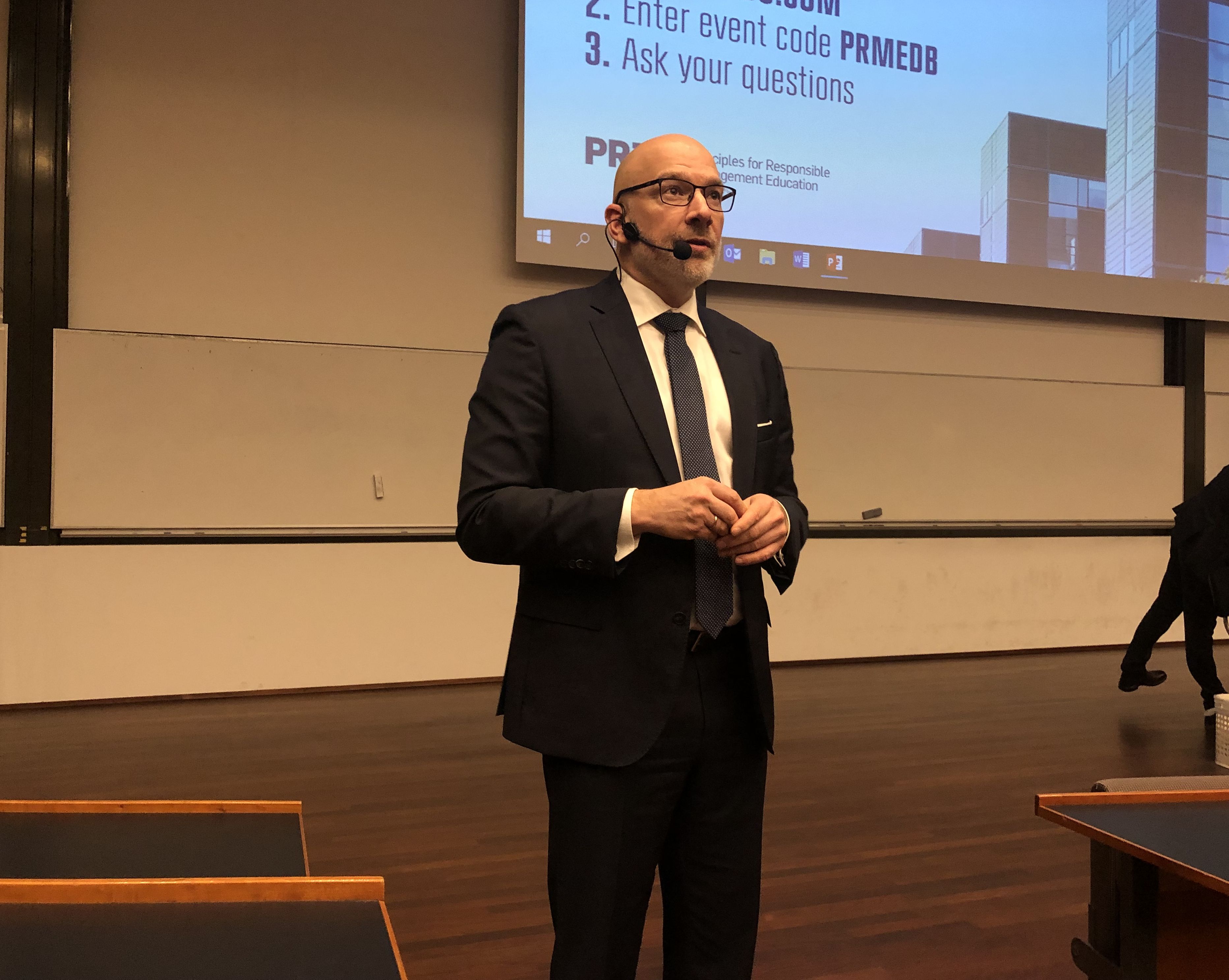
(Photo: Mette Koors)
“We want to make the bank available and talk about what happened. Hopefully, people will see that we’re taking responsibility,” said the interim CEO of Danske Bank, Jesper Nielsen when he visited CBS on February 6. Students approve of the bank’s availability, but doubt whether it will restore the bank’s credibility. Is it just talk?
“I challenge you to find a question I haven’t had yet,” said the interim CEO of Danske Bank, Jesper Nielsen to students and staff when he visited CBS on Wednesday February 6 to participate in a debate about the money laundering case. The event was co-hosted by CBS PRME and CBS.
In October 2018, CBS decided not to establish any new collaboration “until new top management has been appointed and has demonstrated the ability to restore confidence in the bank through critical dialogue with society,” said Per Holten-Andersen, the President of CBS.
And if it were up to Per Holten-Andersen, CBS “would have considered going further in terminating its collaboration with whitewash-hit Danske Bank.” He said that in a CBS WIRE podcast.
Charlotte Cator, who studies Business Administration and Philosophy, and Kai Eisenhardt, who studies Business and Development Studies at CBS, both attended the meeting with Danske Bank.
“I came because I want to understand the impact on society by banks, and how this case has changed that. And I think it’s nice that he has taken the time to talk to us, but I don’t know if that’ll change anything,” said Charlotte Cator.
“I think it’s interesting to see how the bank and its management show responsibility. This is surely a good platform to show change. But what happens next? Is it just talk?” said Kai Eisenhardt.
You can read some of the questions asked at the debate meeting in the fact box at the bottom of the article.
Restoring confidence
One of the major questions asked by the audience was how Danske Bank is going to restore confidence in the bank. Something that CBS needs from the bank before resuming new collaboration.
“I’m trying to do that right now by talking to as many people about the case as possible. And hopefully people will feel and see that we’re taking responsibility and that we’re sorry about the case,” Jesper Nielsen said as he referred to the money laundering case and the ‘Estonia case’ throughout the debate.
He added:
“It’s obvious that we can’t talk about societal responsibility for a while. But we can talk about banking, and show that we are handling the case.”
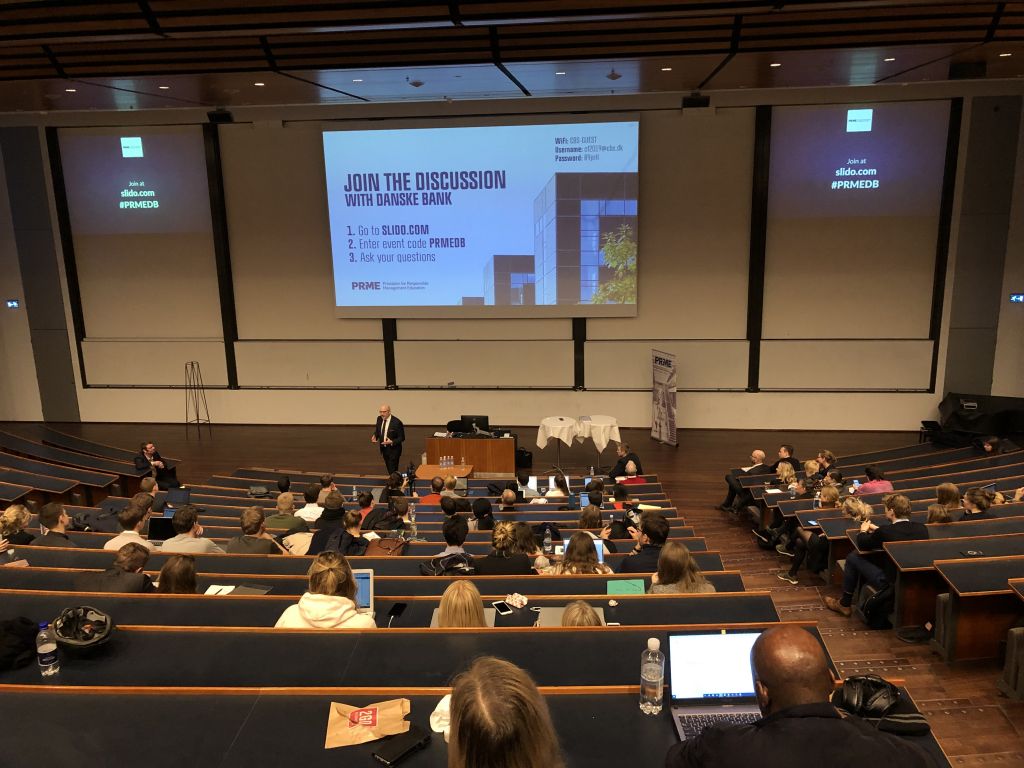
(Photo: Mette Koors)
A thesis about Danske Bank
Andreas Bjørk Tousig, who studies cand.merc at CBS, attended the debate too as he has just started writing his thesis about Danske Bank’s money laundering case. To be more specific, he and his fellow student are looking into Danske Bank’s crisis communication and how the case has affected their reputation.
“We just found out about the debate a couple of days ago, which is super great as we’re writing our thesis about the money laundering case. So we brought a lot of questions with us,” he says.
One of the questions Andreas Bjørk Tousig asked was:
“It’s Danske Bank’s vision ‘to be recognized as the most trusted financial partner’. Has your organization complied with this statement during the last decade?”
“He answered that it was the ambition of Danske Bank, but whether they had lived up to that ambition was questionable,” said Andreas Bjørk Tousig.
For the thesis, Andreas Bjørk Tousig is doing an interview with the Head of Communication at Danske Bank in the coming week, and attending the debate was a good opportunity to try out some of the questions he’d already prepared.
“Going to this meeting has definitely made us better prepared for the interview next week, as we got some inspiration from the audience for other relevant questions too,” he said.
Changing a culture
One of the last questions that Jesper Nielsen answered was about what Danske Bank had learned from the case, and how they’ll make sure that management is responsible in the future.
“I think there are several key learnings,” he said and explained:
“First of all, it’s always risky to have small units far away from the head office. And then I think it’s kind of ironic that the two cases, which almost brought Danske Bank to its knees, have involved the purchase of smaller banks. We have to be aware of that in future.”
What lies ahead of Danske Bank now is a change in culture for the employees, and that’s not going to be an easy task.
“We have to make sure that the people on the floor have the right mindset. This means that management needs to create a new culture among our employees. We have 20,000, so it’s not going to be easy,” said Jesper Nielsen.



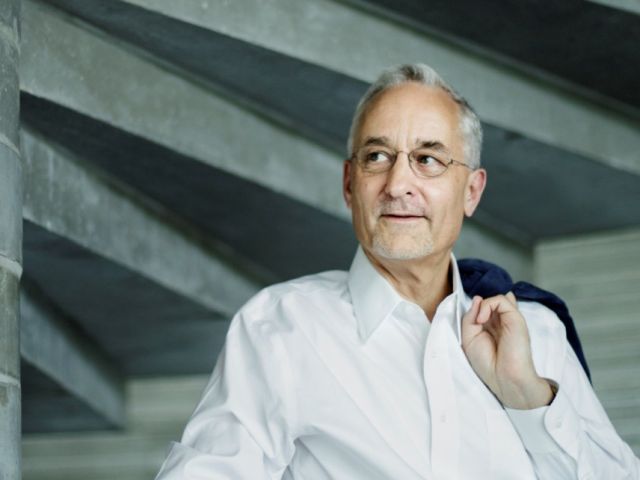
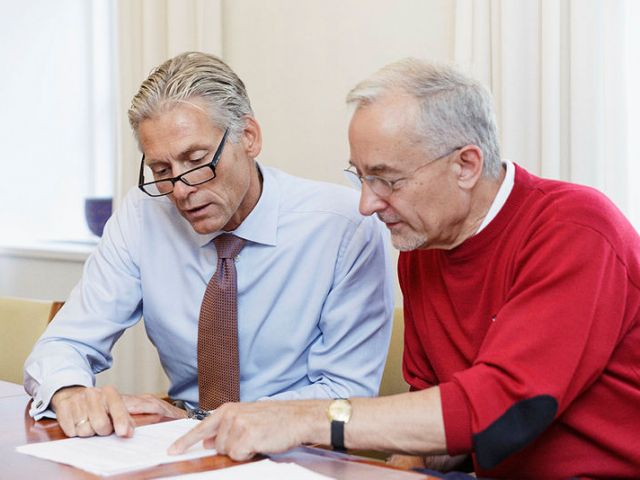
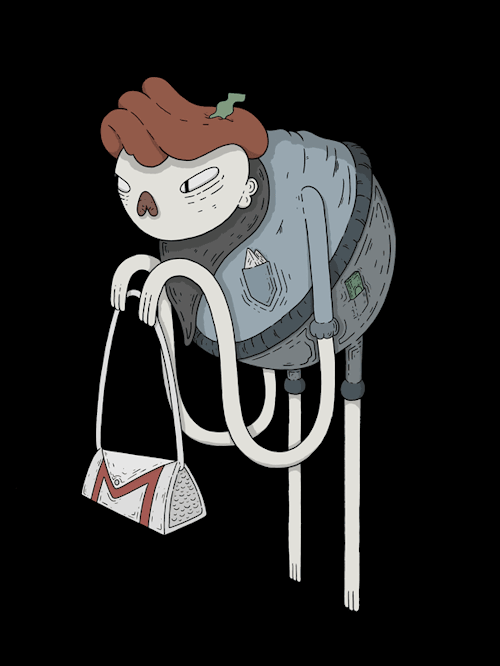
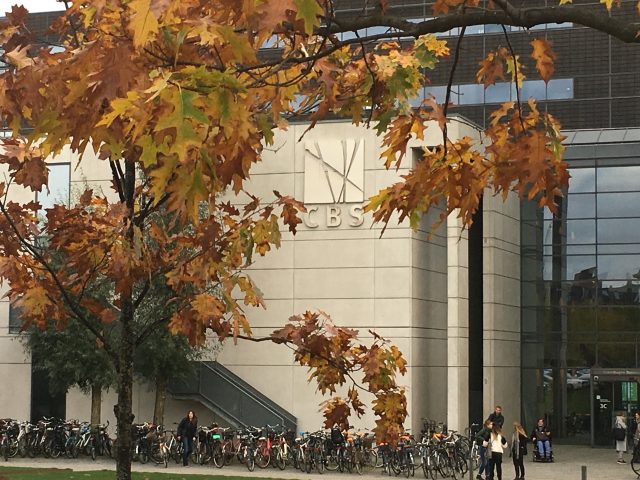
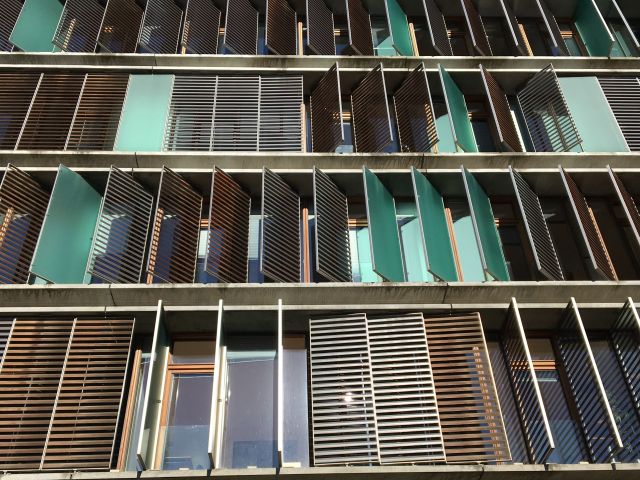






























































































































Comments